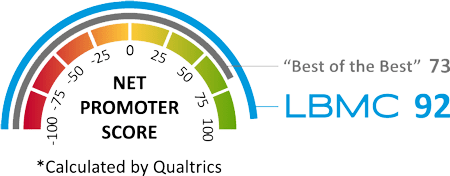Imagine a Different Kind of World
We think you can and should dream bigger. Think outside the box. Ideate and innovate. We’ll do whatever it takes to help you plan a bigger, brighter future, then build the tools you need to find success.
Our CPA firm is locally grounded and nationally capable with locations in Tennessee, Kentucky, Indiana and North Carolina.
News
Featured Blog Posts
Empowering Your Success with Accounting and Business Consulting

At LBMC, we’re all about empowering your success with our top-notch accounting and business consulting services. Though we call Tennessee home, our team of nationally-recognized experts brings a wealth of knowledge and experience to the table, and we’re dedicated to building supportive relationships with our clients to help them achieve their goals.
Whether you need help with accounting, finance, human resources, technology, cybersecurity, or wealth advisory, we’ve got you covered. As a trusted accounting and business consulting firm, we’re committed to delivering the results you need to take your business to the next level.
We’re proud to serve a wide range of clients across various industries with focus on privately held companies, private equity groups and their portfolio companies, healthcare, and high-net-worth individuals. No matter what your needs are, we’ll work closely with you to provide personalized attention and genuine care that sets us apart from other firms.
At LBMC, we understand that your success is our success. That’s why we’re always here to help you navigate the complex world of accounting and business consulting, so you can focus on what really matters: growing and thriving in your industry.
- What we do – Provide tax, audit, and advisory services to middle market clients. Our advisory services offer solutions in business intelligence, valuation, healthcare consulting, cybersecurity, forensic accounting, and transaction advisory to enhance strategic and operational success across sectors.
- Who we do it for – Many industries, but we specialize in privately held companies, private equity groups and their portfolio companies and healthcare as well as high-net-worth individuals.
- How we do it – Focused on client needs with dedicated team members who are the best in their profession.
Our family of companies’ services include staffing, human resources, outsourced finance and accounting, procurement, outsourcing technology, and investments.
